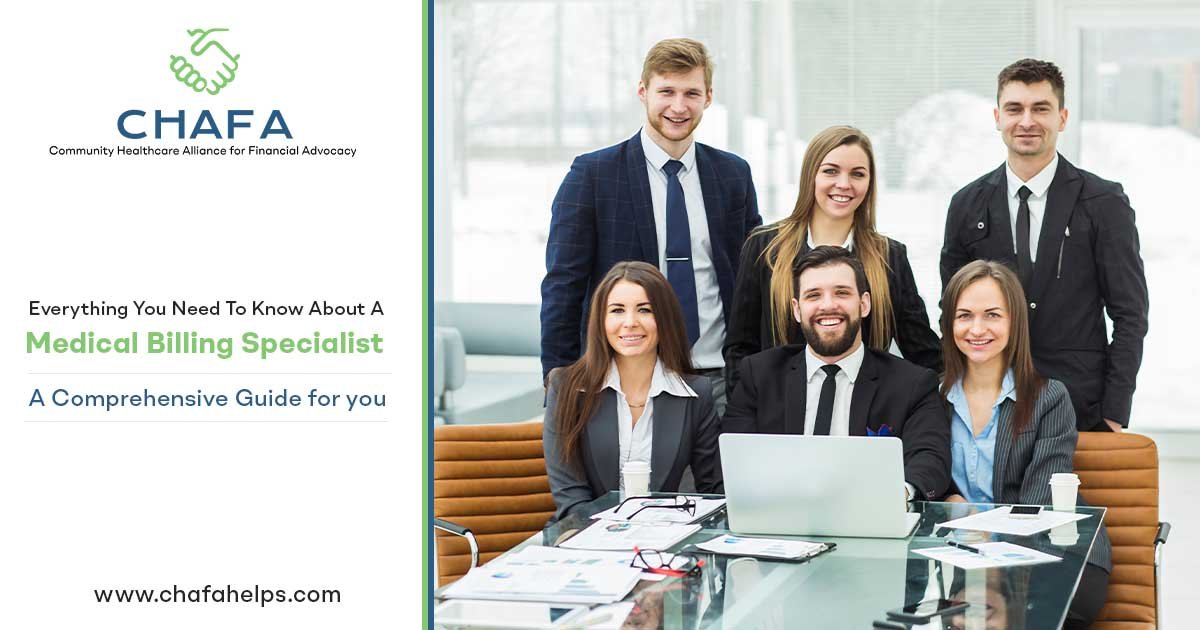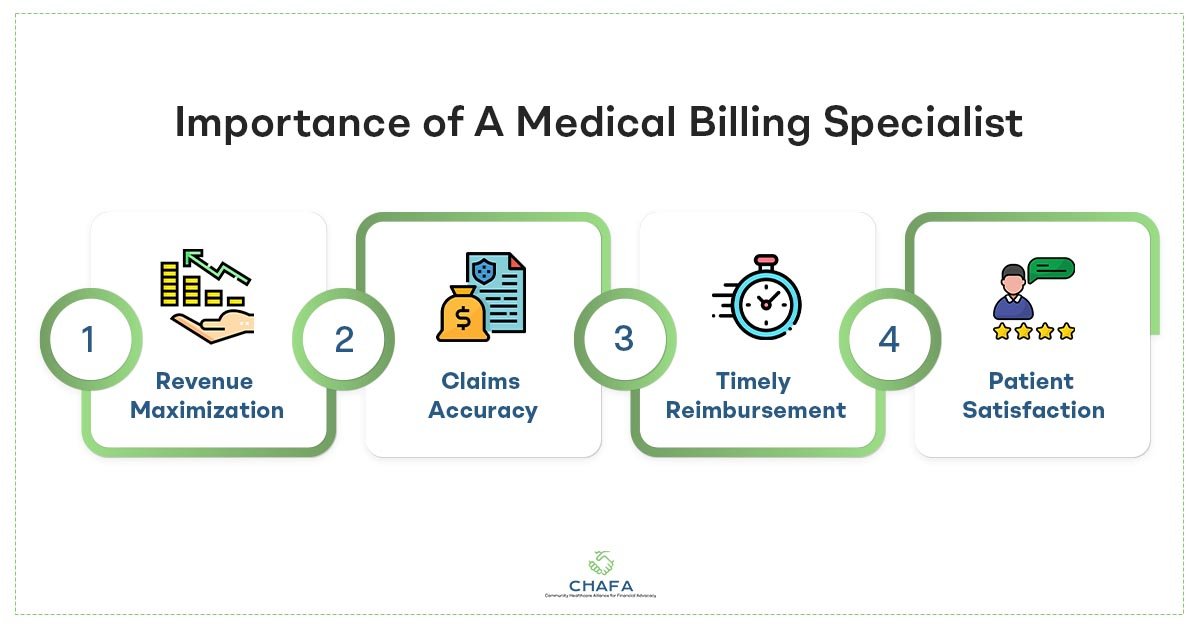
In order to maintain the financial stability of healthcare providers, medical billing is necessary.
Being a complicated and perplexing aspect of healthcare, medical billing can be difficult to comprehend. But once you understand the fundamentals, you’ll have the know-how and self-assurance to manage medical expenses with ease.
Medical billing specialists, who are skilled in navigating the complexities of healthcare coding, insurance claims, and reimbursement procedures are at the center of this process.
What is the Medical Billing Process?
Healthcare providers use a set of procedures called the medical billing process to charge patients and insurance companies for the services they deliver. Medical billing is extremely important when it comes to maintaining healthcare compliance.
It involves translating medical operations, diagnoses, and treatments into codes that are accepted worldwide, filing claims to insurance providers or government health programs, and making sure that services rendered are promptly reimbursed.
Once the patient receives medical services, healthcare providers document the services provided, including diagnoses, treatments, and procedures performed, using standardized medical codes.
After the services are documented and coded, the next step is to enter the charges associated with each service into the billing system. This includes assigning appropriate fees or charges based on the complexity and type of medical services provided.
Once the charges are entered into the system, the medical billing specialist generates a claim or bill that includes all the coded services provided to the patient during their visit.
Understanding the Role of a Medical Billing Specialist
Medical billing specialists, also referred to as medical coders or reimbursement specialists, are in charge of converting medical diagnoses and procedures into the universal codes needed for billing and compensation.
To guarantee correct and prompt reimbursement for services performed, they serve as a middleman between patients, insurance companies, and healthcare providers.
Key Responsibilities of a Medical Billing Specialist

- Coding:
Assigning specific alphanumeric codes to medical procedures, diagnoses, and treatments according to established coding systems such as ICD-10 (International Classification of Diseases, 10th Edition) and CPT (Current Procedural Terminology).
- Billing:
Generating and submitting claims to insurance companies or government healthcare programs for reimbursement of services provided to patients.
- Claims Processing:
Reviewing claims for accuracy and completeness, addressing any discrepancies or errors before submission to ensure timely payment.
- Insurance Verification:
Verifying patients’ insurance coverage and eligibility, including determining copayments, deductibles, and coverage limits.
- Follow-up:
Monitoring unpaid claims, identifying reasons for denials or rejections, and resubmitting claims with necessary corrections or appeals.
- Patient Billing:
Generating patient statements for services not covered by insurance, explaining charges, and assisting patients with billing inquiries or payment plans.
Skills and Qualifications Required
Becoming a proficient medical billing specialist requires a blend of technical expertise, analytical skills, and attention to detail.
While formal education and certification are not always mandatory, they can significantly enhance job prospects and earning potential in this field.
1) Knowledge of Medical Terminology:
Understanding medical terminology, anatomy, and physiology is essential for accurately translating clinical information into billing codes.
2) Proficiency in Coding Systems:
Familiarity with coding systems such as ICD-10, CPT, and HCPCS (Healthcare Common Procedure Coding System) is necessary for assigning appropriate codes to medical procedures and diagnoses.
3) Attention to Detail:
Medical billing requires meticulous attention to detail to ensure accuracy in medical coding and billing, reducing the risk of claim denials or errors.
4) Analytical Skills:
The ability to analyze medical records, insurance policies, and billing guidelines to determine the most appropriate codes and billing procedures.
4) Communication Skills:
Effective communication with healthcare providers, insurance companies, and patients is vital for clarifying billing issues, resolving disputes, and providing assistance.
5) IT Proficiency:
Familiarity with electronic health record (EHR) systems, medical billing software, and office productivity software is increasingly important in the digitalization of healthcare operations.
6) Ethical Standards:
Medical billing specialists must adhere to ethical standards and privacy regulations, such as HIPAA (Health Insurance Portability and Accountability Act), to protect patient confidentiality and prevent healthcare fraud or abuse.
Importance of A Medical Billing Specialist

1) Revenue Maximization
One of the primary responsibilities of medical billing specialists is to ensure accurate and timely billing for healthcare services provided to patients. By submitting clean claims and following up on denials or rejections promptly, they help maximize revenue for healthcare providers.
2) Claims Accuracy
They ensure that claims are coded accurately and comply with industry standards and payer requirements. By adhering to coding guidelines and regulations such as HIPAA, they mitigate the risk of claim denials or audits, minimizing revenue loss and legal liabilities.
3) Timely Reimbursement
Medical billing specialists expedite the claims submission process, track claim statuses, and follow up on unpaid claims.
4) Patient Satisfaction
Effective medical billing practices contribute to a positive patient experience by ensuring transparency and accuracy in billing processes. They educate patients about their insurance coverage, out-of-pocket expenses, and payment options.
With the increasing complexity of healthcare regulations, advancements in technology, and the growing demand for healthcare services, the role of medical billing specialists will continue to evolve and expand in the years to come.
CHAFA has years of experience in medical billing and specializes in providing unique custom services.

